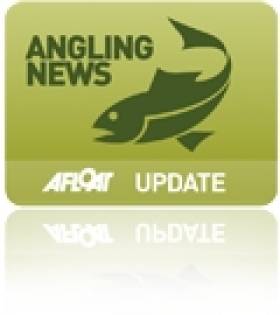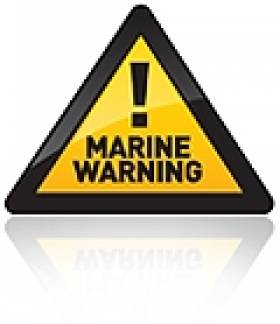Displaying items by tag: frozen
Cold Weather Threat to Fish in NI
The recent cold snap has posed a serious threat to Northern Ireland's fish.
The Belfast Telegraph reports that thousands of salmon froze to death at a fish farm in Co Antrim last week as temperatures dropped well below zero.
Staff at the British government research centre in Bushmills have battled against the elements to protect their fish stocks, as rivers and canals throughout the country have frozen over into virtual ice rinks.
Centre manager Martin McAleese told BBC Radio Ulster: "Unless you keep the water running in the tanks overnight, they'll run out of oxygen. The fish suffocate."
The full extent of last week's extreme cold on inland waters is not yet known, but it is feared that angling in the area could be affected.
'No Such Thing as Safe Ice' - Irish Water Safety Issues Warning
The Chairman of Irish Water Safety, Frank Nolan is warning the public about the danger of drowning as the current spell of bitter cold weather has resulted in frozen ice over canals, rivers and lakes. Children are especially at risk as they are attracted to playing on ice. Constant supervision is the key to keeping children off the ice. He cautions parents that "there is no such thing as safe ice". Also at risk are individuals who attempt to rescue others fallen through ice. "Ice-related drownings often occur when the rescuer gets into difficulty attempting to rescue another person or a family pet. Whereas a pet will often manage a scramble to safety unaided, regrettably, the owner may not.Playing or fishing on the frozen edges of a river, lake or canal is perilous as ice can be quite thick in one area yet dangerously thin in others."
Ice Rescue Tips:
Carry your mobile - Call for assistance from the emergency services.
Do not attempt a rescue by going onto ice.
Instruct the casualty to keep still thereby maintaining their heat and energy.
Try to find something close by that will extend your reach such as a ringbuoy, rope, pole, branch or items of clothing. Throw this to the casualty. Then make sure you are stable on the bank by lying down or getting someone to hold onto you and attempt to pull the casualty from the water.
If you cannot find something with which to perform a reach or throw rescue, try to find something that will float to throw or push out to them. This will help keep the casualty afloat until assistance arrives.
Throughout your rescue KEEP OFF THE ICE, and continue to reassure the casualty, keeping them talking until help arrives.
All casualties should be taken to hospital even if they appear to be unaffected by their ordeal as they will be suffering from hypothermia.
Christmas Charity Swims
The Christmas season in Ireland is a time when thousands of people participate in traditionally run sponsored swims in support of many charitable causes.
People organising these swims on Christmas Day, St. Stephen's Day or New Year's Day should ensure that they provide comprehensive details of each event to the Irish Coast Guard and local Gardai.
Each event should have a Safety Officer appointed, who will advise those concerned on safety and have the ultimate responsibility for making decisions in relation to the swim being on or off on the day.
If the seas are rough and weather deteriorates, they should defer the event to a more suitable day without question - do not take a chance on running the event.
Many participants will not have had a swim since the summer and the temperature of the water has now dropped considerably. It is a fallacy that alcohol will keep you warm when entering the water; in fact it could impair your sense of judgment, distance and direction. Cold water can cause cold shock and hypothermia in minutes.
Swimmers' remaining in the water for extended periods in a gesture of bravado is not acceptable. The message is "Get In, Get Out and Dry Off well".
LIFESAVING WATER SAFETY POINTS THIS CHRISTMAS:
In a Marine Emergency call 999 or 112 and ask for the Coast Guard.
Supervise children at all times, but especially if you are on holidays abroad this Christmas.
Never swim alone in a pool unprotected by lifeguards. Ensure that there are lifeguards on duty.
Avoid cold shock and hypothermia on Christmas and New Year Charity Swims.
Do not engage in any water-based activities after the consumption of alcohol, remembering also road safety.
Always wear a Lifejacket when boating or participating in other aquatic sports.
Be aware of flood dangers and make to higher ground.
Be careful when fishing from rocks or on the banks of rivers, or lakes.






























































